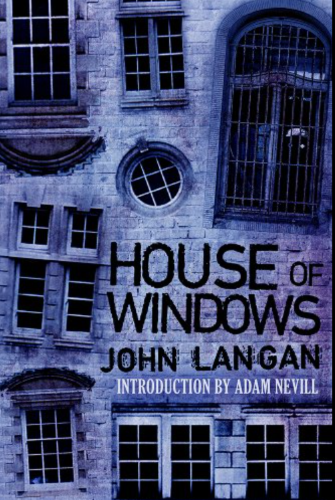Book Review: House of Windows (2009)
Night Shade
If by some dark magic I could add a dozen novels to an author’s catalog, the name I would invoke in this monster’s pact would be John Langan. There’s something at the heart of his writing that speaks to me especially clearly. I savor the lengthy, personal explorations into the psyche of his characters. I relish the quiet menace he imparts at the close of chapters, fluttering the curtain just enough to frame the monstrous shape of what stands behind it. He has a poet’s capacity to describe horrors whose scale is too grand for the pages on which they appear. As a reader, I live for the yawning moments when he kicks away the bulwark and lets all he has built in both the light and the dark crash together.
Langan marries the promise and potential of Lovecraft with the discomforting incertitude of Poe before drawing both into the modern era and signing his own name at the bottom. His books are lengthy, literary explorations where characters are so fully realized that readers may forget that his chosen genre is more closely associated with the airport bookstores than literary journals.
In my eyes, John Langan elevates horror better than any other living author.
An Uncertain Provenance
House of Windows follows the life of Roger Croydon, an esteemed professor of literature and Dickens scholar who, after a violent altercation with his adult son in the wake of Roger’s remarriage, invokes a mysterious entity to seek revenge. When the son dies in an Al-Qaeda ambush in Kabul, Roger is unwilling to acknowledge that his dark pact may have bearing on what happened, and insists that the supernatural occurrences which have subsequently cropped up in his home are a symptom of his son reaching out for reconciliation from beyond the grave.
And Roger may be right. Belvedere House, the monolithic residence where he resides, has a troubled history when it comes to artists and creatives. Could it be that something in the walls of the grand structure is responsible for the recent darkness, rather than Roger’s actions?
The novel charts Roger’s fall and failure as told through the eyes of his widow, Veronica, as she relays it to an acquaintance over the course of a few evenings. Through her recollection, the reader will follow her life through the early days of her scandalous marriage to Roger, to the pivotal conflict and subsequent wartime death of his son, to Roger’s blind insistence that Ted is reaching out from beyond the grave to reconcile with him despite Veronica’s insistence that this spirit’s purpose is far more sinister. Veronica will scramble to untangle the origins of the dark presence in the home, exploring whether it began or simply continued with Roger and Ted’s dark entanglement.
A Messy Miracle
While I often champion novels with intricate, complex plots, it’s the characters that shine brightest in House of Windows. Both Veronica and Roger are sharp enough to step off the page, and they throw sparks off each other as readily as the mysteries of Belvedere House. If you’re going to enjoy this novel, you probably need to appreciate characters who breathe and sleep as well as they push the plot forward, as Roger and Veronica will each spend a great deal of time walking about their residence, ordering take-out, and envisioning future conflicts with each other before playing them out. The reader gets an intimate look into their marriage, and while I think the novel is much stronger because of this, I recognize it won’t sit well with everyone.
The other caution I will offer is that this is a novel for those who are content to leave much of the mystery intact upon reaching the afterword. While I think Langan did an admirable and adequate job of defining the evil in the novel, readers won’t be left with an expansive or immaculate understanding of what haunted Belvedere House. This is a story of family first, with the darkness that destroyed much of their lives left a distant second.
The conclusion of the book comes abruptly, with the finale triggering from no more apparent need than the author’s inevitable need to wrap up the novel, but this minor complaint is the most substantial criticism I can offer, as Langan has, quite simply, created a nearly-perfect literary horror novel, with its execution far closer to Henry James than Stephen King (take that as you will).
House of Windows is what the finest horror should aspire to be: a patient, deeply human narrative that is rooted well enough in reality that its impact goes beyond the expectation of genre fiction. As readable to fans of horror as it is to those who appreciate a modern literary sojourn into the dark heart of a complex marriage, House of Windows is one of those books that, for the right reader, is immediately rewarding.
Verdict: 9.4/10
Strengths:
Exceptional storytelling constructed in common language; Langan needs no ornamentation in his prose to construct a dazzling narrative
Top-tier, deeply human characters and character interactions
Enough sinister elements to keep horror fans appeased
Weaknesses
May be too slow for some readers
Much is left unrevealed at the close
Despite the novel’s solid length, it feels there’s another leg of the journey
You can pick up this book on Amazon, Barnes and Noble, or preferably, from an independent bookstore in your community.
You may also like: Duma Key, Henry James


